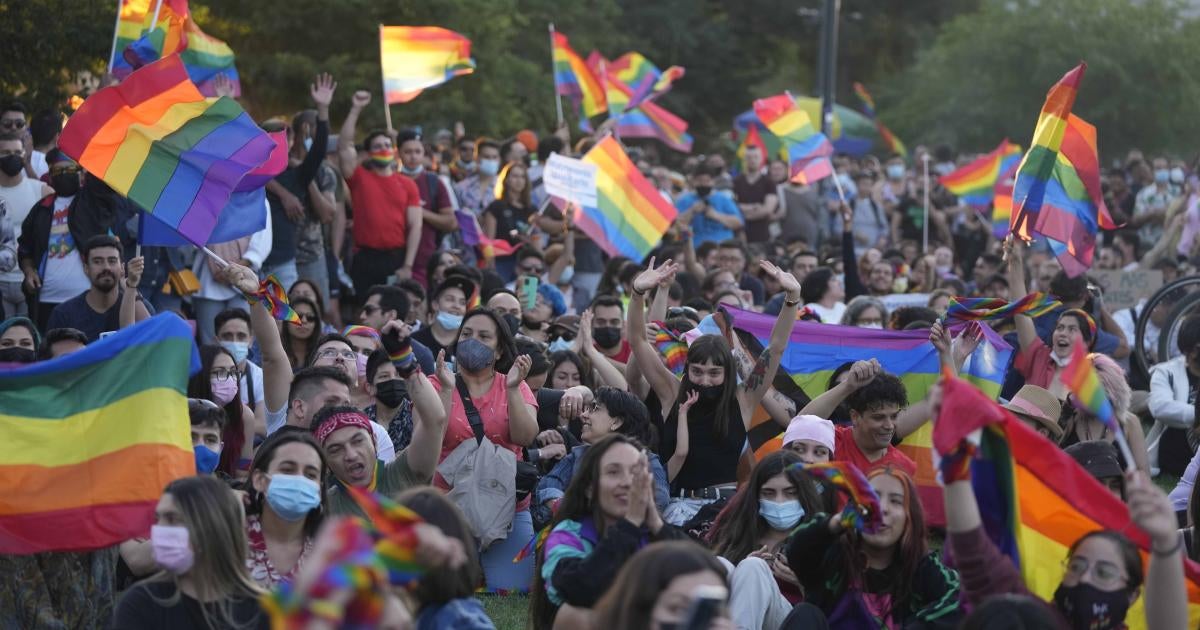In the Supreme Court, the Centre expressed its opposition to same-sex marriage, citing traditional beliefs and values.
The following are the main points of the affidavit:
- Heterosexual marriage has been the norm throughout history and is “fundamental to the state’s existence and continuation.”
- Marriage is regarded as a “holy union,” a “sacrament,” and a “sanskar” in India, and is influenced by customs, rituals, practises, cultural ethos, and societal values.
- Any “deviation” from the “statutorily, religiously, and socially” accepted norm in a “human relationship” must go through the legislature, not the Supreme Court.

Basis of Centre’s opposition
- The 2018 Navtej Singh Johar judgment decriminalised homosexuality, but it did not mention/legitimise same-sex marriage.
- A man and woman living as a family with children born from the union cannot be compared to a same-sex marriage.
- Registration of same-sex marriage would be a violation of both existing personal and codified legal provisions.
- The society and state have a “compelling interest” in limiting recognition to heterosexual marriages only.
Reasons for the opposition of the centre
- Legal reform is required: The registration of marriage of same-sex persons also results in a violation of existing personal as well as codified law provisions — such as ‘degrees of prohibited relationship’; ‘conditions of marriage’; ‘ceremonial and ritual requirements’ under the personal laws governing the individuals”.
- In the context of the legislative scheme of various personal laws, it is neither possible nor feasible to refer to one as “husband” and the other as “wife” in a same-sex marriage.
- Defying cultural norms: Our country’s social order is based on religion, and procreation is viewed as an obligation for the performance of various religious ceremonies.
- Property rights and other civil liberties: Property rights after marriage are a contentious issue in India. Same-sex marriage will not provide legal immunity, but will instead increase the complexity of interpretations.
Problems with such marriages
- The issue of homosexual behaviour has recently come to the forefront of legal and political debate for the following reasons:
- Morality: As a result of this, social attitudes have shifted, and the stigma associated with homosexuality has faded to a greater extent.
- Increasing activism: Lesbian and gay rights campaigns have become increasingly radical, arguing for an end to all forms of discrimination against homosexuality.
- Religious penalties: In Arab countries, same sex acts are punishable by death. No religion openly supports same-gender marriage. They are generally regarded as unnatural everywhere.
- Apart from the harsh legal environment, homosexuals face social stigma as well. Same sex marriages are still unthinkable because any sexual relations between two people of the same sex elicits hatred and disgust.
- Patriarchy: It should not be forgotten that Indian society is patriarchal in nature, and the fact that certain women and men have different choices that are not sanctioned by the ‘order’ scares them.
- Individualism is not encouraged in our society, and any expression of homosexuality is viewed as an attempt to renounce tradition and promote individualism.
Arguments in support
- Pursuit of happiness: Homosexuality is not an offence; it is simply a method of achieving sexual happiness or desire.
- Right to privacy: The fundamental right to liberty (under Article-21) prohibits the state from interfering with an individual’s private personal activities.
- Arbitrariness: Infringement of the right to equal protection under the law necessitates determining whether the classification introduced has a rational and objective basis.
- Problems with definition: Section-377 assumes that a natural sexual act is one performed for the purpose of procreation. As a result, it labels all non-procreative sexual acts as unnatural.
- Section-377 discriminates on the basis of sexual orientation, which is prohibited by Article-15 of the Constitution. Article 15 forbids discrimination on several grounds, including gender.
- Human rights: According to the Universal Declaration of Human Rights, social norms, tradition, custom, or culture cannot be used to prevent a person from asserting his fundamental and constitutional rights.
- Many countries acknowledge: Same-sex marriages are legal in at least 30 countries, including the United States, Australia, Canada, and France, according to the global think tank Council on Foreign Relations.
Way ahead
- Distancing oneself from religion: Such marriages are prohibited in almost every religion. As a result, no single religion should be regarded as impeding the development of a legal sanction.
- Eliminating discrimination: The same-sex community requires an anti-discrimination law that allows them to build successful lives and relationships regardless of gender identity.
- Allowing society to evolve: The doctrine of progressive realisation of rights must be instilled in society, and it cannot be forced by law.
- Increasing awareness: This is not going to happen overnight. We live in a society where Sati and Nikah halala are considered religious orders.
Source: https://www.sciencedirect.com/topics/social-sciences/same-sex-marriage
